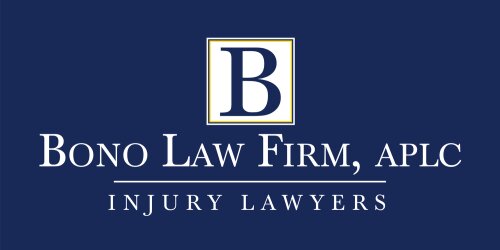Best Brokerage Lawyers in United States
Share your needs with us, get contacted by law firms.
Free. Takes 2 min.
Free Guide to Hiring a Real Estate Lawyer
Or refine your search by selecting a city:
List of the best lawyers in United States
About Brokerage Law in United States
Brokerage law in the United States encompasses the regulations and guidelines governing brokers who buy and sell securities, real estate, and other commodities on behalf of clients. Brokerages play a critical role in financial markets, facilitating investment and real estate transactions. The legal landscape for brokerage is intricate, involving federal laws, such as the Securities Exchange Act of 1934, and various state laws. Brokers must adhere to ethical standards and are typically licensed by the Financial Industry Regulatory Authority (FINRA) or state real estate commissions.
Why You May Need a Lawyer
Engaging legal help in brokerage-related matters can be crucial in several situations:
- Disputes over commissions or fees with a broker.
- Issues with the sale or purchase of securities or real estate.
- Allegations of broker misconduct, such as fraud or breach of fiduciary duty.
- Complex regulatory compliance issues, particularly for brokerage firms.
- Negotiating agreements or contracts involving brokerage services.
- Understanding liability concerns in brokerage transactions.
Local Laws Overview
While federal regulations provide a baseline, state laws can significantly impact brokerage activities:
- Licensing Requirements: Real estate brokers and securities brokers must meet state licensing requirements and may need to pass additional examinations.
- Fiduciary Duty: Brokers generally owe a fiduciary duty to their clients, requiring them to act in the client's best interest.
- Disclosure Obligations: Brokers must disclose material information and avoid conflicts of interest.
- Commission Regulations: States may regulate how and when brokers receive commissions.
- Advertising Rules: State laws often govern how brokers can advertise their services.
Frequently Asked Questions
What licenses are required to be a broker in the US?
Real estate brokers need a state-issued license, while securities brokers must be licensed by FINRA. Additional exams or credentials might be required for other types of brokers.
What is fiduciary duty in brokerage?
Fiduciary duty requires a broker to act in the best interest of a client, prioritizing the client's interests over their own when executing transactions.
What can I do if I have a dispute with my broker?
First, try to resolve the issue directly with the broker. If that fails, consider filing a complaint with a regulatory body like FINRA or seeking legal counsel.
Can a broker charge any commission they want?
While brokers have some discretion in setting commission rates, they must comply with state regulations and any prior agreements with clients.
What constitutes broker misconduct?
Misconduct may include fraud, unauthorized trading, failure to disclose conflicts of interest, or misrepresentation of information.
How do I check a broker's credibility?
For securities brokers, use FINRA’s BrokerCheck tool. For real estate brokers, check with the state’s licensing agency.
Are brokers required to disclose conflicts of interest?
Yes, brokers must disclose all material conflicts of interest to their clients to ensure informed decision-making.
What should be in a brokerage agreement?
An agreement should outline the services provided, fee structure, duration, and conditions under which either party can terminate the contract.
What is the role of FINRA in brokerage regulation?
FINRA oversees securities brokers, enforcing compliance with licensing standards and ethical guidelines to protect investors.
Can brokers give investment advice?
Securities brokers can offer investment advice, but they must be registered investment advisers to provide ongoing advisory services and must act in clients' best interest.
Additional Resources
For further assistance and information, consider the following resources:
- FINRA: Provides regulatory oversight for securities firms operating in the United States.
- National Association of Realtors (NAR): Offers resources and advocacy for real estate professionals.
- State Real Estate Commissions: Govern licensing and regulations for real estate brokers at the state level.
- U.S. Securities and Exchange Commission (SEC): Oversees securities transactions, market activities, and protects investors.
Next Steps
If you require legal assistance regarding brokerage matters, consider the following steps:
- Identify Your Needs: Clearly define the issue or legal question you need help with.
- Consult with a Lawyer: Find an attorney who specializes in brokerage law for a consultation.
- Gather Documentation: Collect any relevant contracts, emails, and records related to your case.
- Negotiate or Litigate: Work with your legal counsel to determine the best course of action, whether negotiation, mediation, or litigation.
- Stay Informed: Continuously educate yourself on brokerage laws that impact your rights and obligations.
Lawzana helps you find the best lawyers and law firms in United States through a curated and pre-screened list of qualified legal professionals. Our platform offers rankings and detailed profiles of attorneys and law firms, allowing you to compare based on practice areas, including Brokerage, experience, and client feedback.
Each profile includes a description of the firm's areas of practice, client reviews, team members and partners, year of establishment, spoken languages, office locations, contact information, social media presence, and any published articles or resources. Most firms on our platform speak English and are experienced in both local and international legal matters.
Get a quote from top-rated law firms in United States — quickly, securely, and without unnecessary hassle.
Disclaimer:
The information provided on this page is for general informational purposes only and does not constitute legal advice. While we strive to ensure the accuracy and relevance of the content, legal information may change over time, and interpretations of the law can vary. You should always consult with a qualified legal professional for advice specific to your situation.
We disclaim all liability for actions taken or not taken based on the content of this page. If you believe any information is incorrect or outdated, please contact us, and we will review and update it where appropriate.
Browse brokerage law firms by state in United States
Refine your search by selecting a state.














